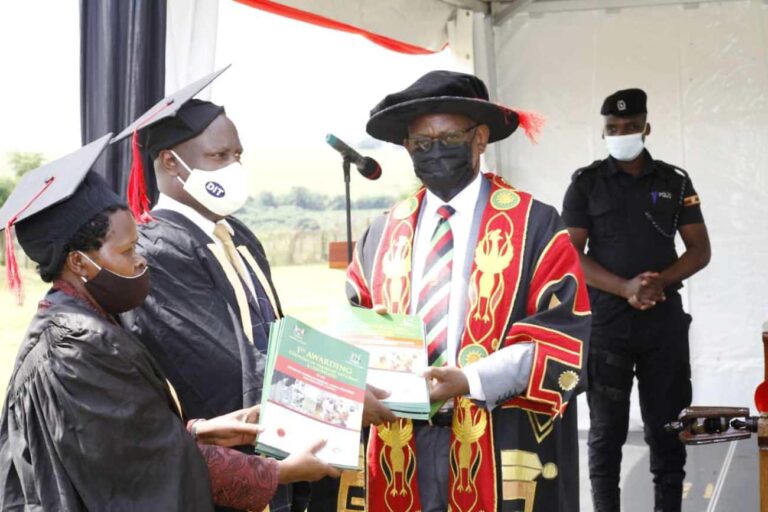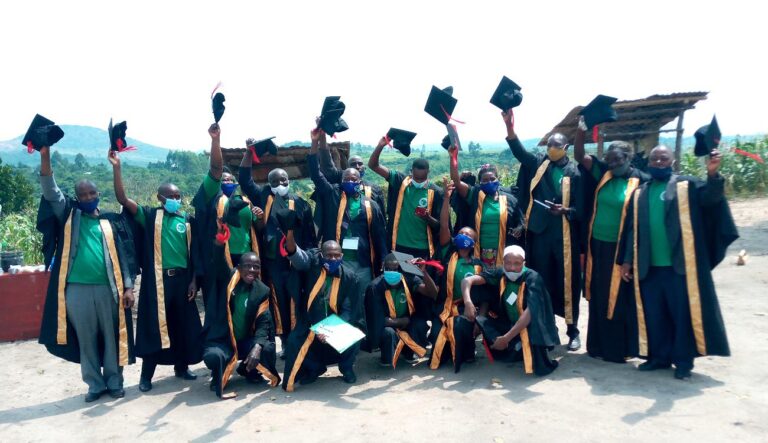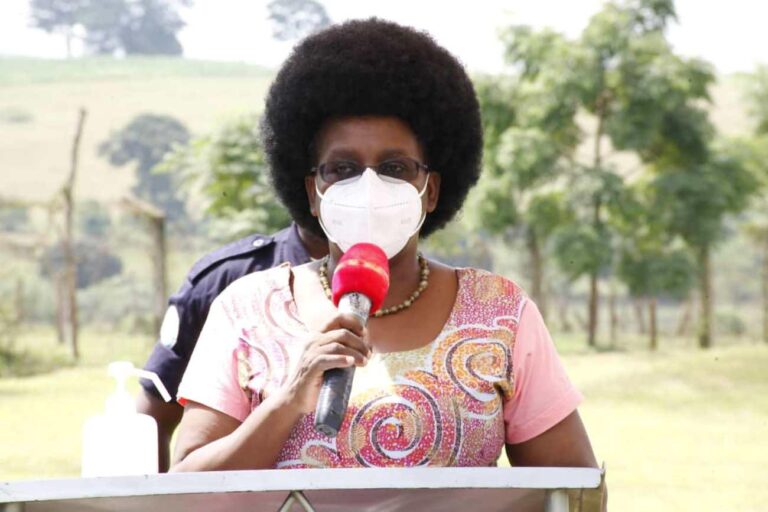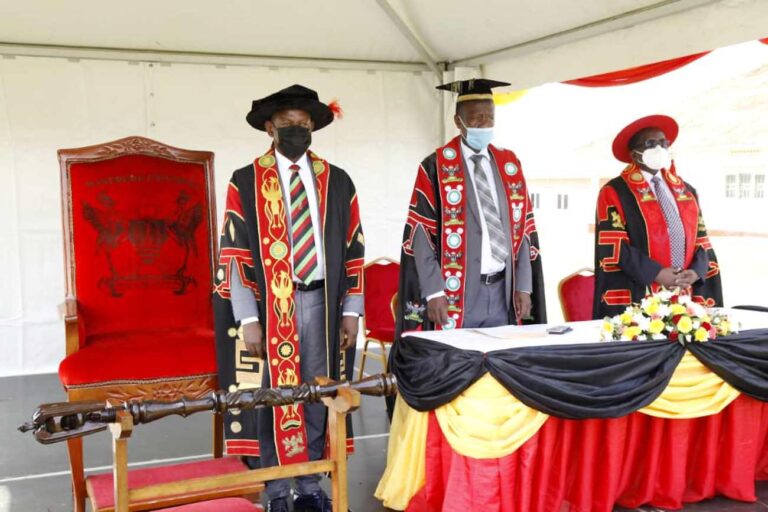
KAMPALA — Education minister Janet Museveni has described Makerere University’s alternative model of community skilling, enterprise development and employment creation as the quickest way to curb unemployment.
Speaking at the blended event held at the Industrial Livestock Research, Incubation and Skilling (ILRIS) Center at Nakyesasa, Namulonge, Mrs. Museveni in a speech read by Makerere University Vice Chancellor Prof. Barnabas Nawangwe said the government has made it a key priority to address unemployment through Skilling and empowering the youth.
The event, held as part of Makerere University Centenary Celebrations (1922-2022) was a moment of celebration for 1,930 skilled livestock agribusiness entrepreneurs who were awarded certificates and ordinary diplomas in recognition of completion of their respective courses. The students from Incubation Hubs in Atiak, Butaleja, Mubende, Nakyesasa, Sheema and Wakiso were awarded their certificates virtually, in respect of coronavirus containment rules.

The First Lady implored the graduates to put the skills they have attained to good use to earn a living and also sue the skills to transform their communities.
She lauded Makerere for supporting grassroot development through the grandbreaking innovations.
“I am extremely pleased that Makerere University, through those innovative approaches, has developed and launched the alternative approach to building human capital and transferring knowledge to enterprises in communities, ” she said, adding that:
“I would like to encourage all those involved in skills development to adopt methodologies that transform those trainees that go through these programs in ways that enable them also transform the societies they live in.”
Mrs. Museveni who also congratulated the College Medicine, Animal Resources and Biosecurity for a successful 50 years of growth encouraged the University to scale up the model as much as possible.
She further noted that commissioning of the CoVAB@50 celebrations was both timely and rewarding. “The commissioning of the college innovations indeed has made meaning. This is a true path to growth of an Academic and Development College of the University, and we congratulate you again.”

Incoming Minister of Science, Technology and Innovation in the Office of the President Dr. Monica Musenero reiterated the importance for today’s youth to be trained and certified in specialised skill areas that are in demand in an increasingly competitive labour market.
“Without skills, we, as a company, have a very low human capital index and that makes our development sluggish,” she said and pledged to pay special interest to this innovation in her ministry because of its uniqueness.
Musenero stressed the importance of innovations as a driver for industrialisation and commended Makerere for continuing to play a key role in the country’s Science, Technology and Innovation (STI) ecosystem.
In his capacity as the Vice Chancellor, Prof Nawangwe congratulated CoVAB upon training the bulk of Veterinary Doctors in Uganda over the last 50 years and more recently, Laboratory Technologists at the highest level.
He recognised Makerere University‘s obligation to contribute to the economic self-determination of Uganda and thanked CoVAB for conducting research that addresses hindrances to national development, especially in the livestock industry.
“The anti-tick vaccine is one of such innovations which will solve the huge problem of tick-borne diseases that have caused enormous losses to our farmers. There are many other problems on which the college is researching and we thank you for the enthusiasm” he added.
He also commended CoVAB for being the vanguard of transformation of the grassroots communities through the SPEDA model. “I urge Government to fund this important initiative so that it can more meaningfully contribute to solving the big problem of youth unemployment.”

He said Makerere is on course to become a research-led university.
Prof. John David Kabasa, COVAB Principal clarified that the approach used to train the day’s awardees was not simply a vocational skilling.
“The combination of action research with knowledge transfer, skilling, plus assessment and accreditation processes done by organs like the DIT (Directorate of Industrial Training, MoES) has given us this result, for the University to provide true leadership and transformation of the community.”
The programmes focus on Commodity Value chains Laboratory Science Education and Industry including Diplomas and Certificates in Dairy Industry and Business, Poultry Industry and Business, Feed Industry and Business, Fish Industry and Business, Pig Industry and Business, Leather Industry and Business, Meat Industry and Business, Bee Industry and Business, Wildlife Industry and Business among others.
Officials said this the training will boost agriculture commercialisation and curb unemployment.
Youth unemployment in Uganda is the highest in Africa. A recent study, Lost opportunity? Gaps in youth policy and programming in Uganda, published by ActionAid, put youth unemployment at 62%, although the African Development Bank says it could be as high as 83%
Uganda has the world’s largest percentage of young people under 30 – 80% – according to the to the State of Uganda population report by the UN Population Fund.
In the past decade, Uganda has experienced strong GDP growth, averaging 7% annually, but this has not generated jobs, a trend seen across the continent. Lack of employment is causing some young people to take risks.
Some young women are taking jobs overseas only to find themselves forced into prostitution, according to Ugandan police.





